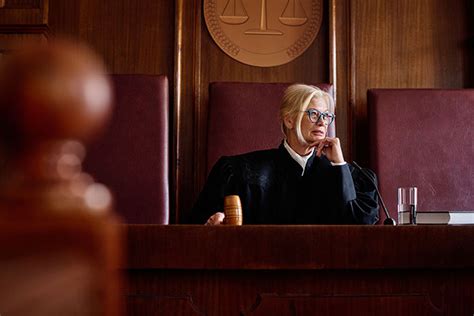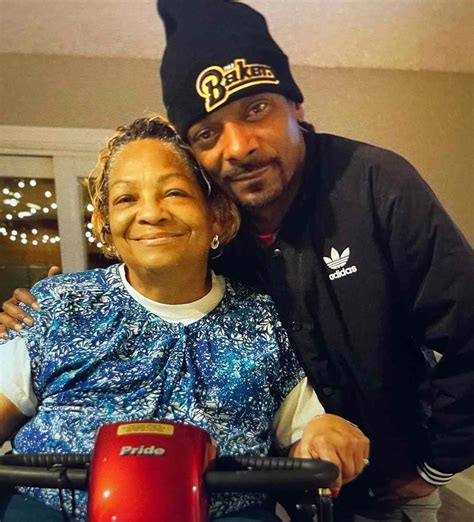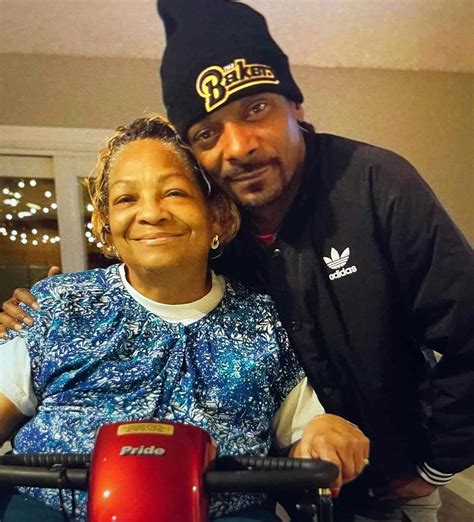
Lawyers recount the pivotal moments in court when clients’ own words or actions sealed their unfavorable outcomes, revealing instances of ill-advised outbursts, admissions, and displays of arrogance that irrevocably damaged their defense. These anecdotes highlight the critical role of client behavior in shaping judicial proceedings and underscore the importance of legal counsel in managing client conduct.
Across courtrooms nationwide, attorneys have witnessed firsthand how a client’s single misstep can dramatically alter the course of a trial. These “uh oh” moments, as many lawyers describe them, often stem from a defendant’s inability to remain composed, honest, or respectful during legal proceedings. The stories shared by legal professionals underscore a recurring theme: a client’s conduct can be as crucial as the evidence presented.
“Sometimes, despite our best efforts to prepare clients, they make decisions that are detrimental to their case,” explains veteran criminal defense attorney Mark Thompson. “It could be anything from an angry outburst on the stand to an unprompted admission of guilt. You just sit there and think, ‘Well, that’s not good.'”
One particularly memorable instance involved a client accused of property damage. Despite being advised to remain silent about the incident, the client, while on the stand, launched into an unsolicited explanation of how he “accidentally” broke the window while attempting to retrieve a lost item. This admission directly contradicted the initial defense strategy, which centered around lack of evidence linking him to the damage.
“He essentially confessed on the stand, even though the prosecution had a weak case before that,” Thompson recalls. “We went from a potential dismissal to a guilty verdict because he couldn’t control himself.”
Another common pitfall occurs when clients underestimate the importance of jury perception. Attorneys stress the significance of appearing respectful, remorseful, and credible in front of the jury. Displays of arrogance, defiance, or lack of empathy can significantly sway juror opinions, regardless of the factual evidence presented.
“I had a client in a civil lawsuit who consistently rolled his eyes and smirked during the plaintiff’s testimony,” recounts litigation lawyer Sarah Jenkins. “He thought he was being clever, but the jury saw him as disrespectful and uncaring. It completely undermined our attempts to portray him as a reasonable businessman.”
Jenkins emphasizes that managing a client’s behavior is an integral part of her job. “We spend hours preparing them for depositions and trial, practicing how to answer questions and advising them on their demeanor. But ultimately, it’s up to them to follow that advice.”
The rise of social media has added another layer of complexity to managing client behavior. Attorneys now caution clients about the potential consequences of their online activity, as posts, comments, and photos can be used as evidence in court.
“We’ve had cases where social media posts completely undermined a client’s credibility,” says family law attorney David Lee. “In one divorce case, the client claimed she was unable to work due to a medical condition. However, the opposing counsel presented photos from her Facebook page showing her participating in strenuous activities. It destroyed her case.”
Lee notes that he now includes social media guidelines as part of his standard client briefing. “We tell them to be mindful of what they post, even in private groups. Assume that anything you put online could potentially be seen by the judge or jury.”
Beyond outbursts and social media missteps, some “uh oh” moments stem from a client’s insistence on controlling the legal strategy, even when it contradicts the attorney’s advice. This can be particularly problematic in complex cases where legal expertise is essential.
“I once represented a client in a fraud case who was convinced he could outsmart the prosecutor,” recalls corporate lawyer Emily Carter. “He insisted on representing himself for a portion of the trial, despite my warnings. He ended up making several damaging admissions that I could have prevented.”
Carter emphasizes the importance of trust in the attorney-client relationship. “We’re not just there to file paperwork. We’re there to provide strategic guidance based on our knowledge of the law and the legal system. Clients need to trust our judgment, even if they don’t always agree with it.”
These accounts highlight a critical aspect of legal representation: the importance of managing client behavior. While attorneys are responsible for providing legal expertise and building a strong defense, clients must also play their part by following advice, remaining composed, and understanding the impact of their actions on the outcome of their case.
The “uh oh” moments serve as cautionary tales, reminding both lawyers and clients that the courtroom is a stage where every word and gesture can be scrutinized and interpreted. Preparation, discipline, and trust are essential elements in navigating the legal process successfully. The ability to control one’s emotions and adhere to legal counsel’s guidance can often be the deciding factor between victory and defeat. In essence, these anecdotes underscore the human element in law, reminding us that even the most meticulously crafted legal strategy can be undone by a moment of indiscretion.
The experiences of these lawyers offer valuable lessons for anyone involved in legal proceedings, emphasizing the significance of preparation, self-control, and unwavering adherence to legal advice. They serve as reminders that the courtroom is a highly charged environment where every action and statement is carefully scrutinized, and where a single misstep can have profound consequences.
Expanded Context and Analysis
The legal profession is a complex interplay of strategy, evidence, and human behavior. Attorneys are not merely legal experts; they are also counselors, strategists, and sometimes even babysitters, tasked with guiding their clients through the often-turbulent waters of the legal system. The stories recounted by lawyers, highlighting the “uh oh” moments, offer a fascinating glimpse into the challenges of managing client behavior and the profound impact it can have on the outcome of a case.
The underlying theme in these narratives is the critical importance of client preparation. Lawyers spend countless hours preparing their clients for depositions, trials, and other legal proceedings. This preparation involves not only reviewing the facts of the case but also advising clients on how to conduct themselves, what to say, and, perhaps more importantly, what not to say. The goal is to ensure that clients present themselves in the best possible light and avoid making statements or taking actions that could harm their case.
However, even the most thorough preparation cannot guarantee that a client will behave perfectly under the pressure of a courtroom setting. The stress of being accused of a crime, facing a lawsuit, or dealing with a contentious divorce can lead individuals to act irrationally or impulsively. This is where the skill and experience of the attorney become crucial.
Experienced lawyers are adept at reading people and anticipating potential problems. They can often sense when a client is about to say something damaging or take an action that could be detrimental to their case. In these situations, they must act quickly to intervene and redirect the client. This might involve signaling the client to remain silent, asking a clarifying question, or even requesting a recess to discuss the matter privately.
The “uh oh” moments also underscore the importance of trust in the attorney-client relationship. Clients who trust their attorneys are more likely to follow their advice and less likely to make decisions that could jeopardize their case. Building this trust requires open communication, honesty, and a genuine commitment to the client’s best interests.
In addition to managing client behavior in the courtroom, attorneys must also be mindful of their clients’ online activity. The rise of social media has created new challenges for lawyers, as posts, comments, and photos can be easily used as evidence in court. Attorneys must now advise their clients on how to manage their social media presence and avoid posting anything that could be used against them.
The ethical considerations for attorneys in these situations are significant. While attorneys have a duty to represent their clients zealously, they also have a duty to uphold the integrity of the legal system. This means that they cannot knowingly allow their clients to commit perjury or engage in other unethical conduct. If an attorney believes that a client is about to do something that would violate these ethical obligations, they must take steps to prevent it, even if it means withdrawing from the case.
The “uh oh” moments, therefore, are not just anecdotes about clients making mistakes. They are reflections of the complex and often challenging role that attorneys play in the legal system. They highlight the importance of preparation, communication, trust, and ethical conduct. They remind us that the law is not just about rules and procedures; it is also about people and their behavior.
Further Examples and Case Studies
To further illustrate the profound impact of client behavior on legal outcomes, consider these additional scenarios:
-
The Arrogant Defendant: A defendant in a contract dispute consistently interrupted the judge, made sarcastic remarks to opposing counsel, and displayed an overall air of superiority. This behavior alienated the judge and the jury, who perceived him as untrustworthy and unlikeable. Despite having a potentially valid legal argument, the defendant lost the case, in part because of his demeanor.
-
The Emotional Witness: A witness in a personal injury case became overwhelmed with emotion while testifying about the accident that caused her injuries. She broke down in tears, struggled to answer questions, and appeared unable to maintain her composure. While her emotional response was understandable, it also undermined her credibility and made it difficult for the jury to follow her testimony.
-
The Social Media Blunder: A client in a child custody case posted disparaging remarks about the other parent on social media. These posts were presented as evidence in court, demonstrating the client’s animosity and lack of respect for the other parent. The judge considered this evidence when making decisions about custody and visitation rights.
-
The Unprepared Witness: A witness in a criminal trial had not adequately prepared for his testimony. He was unsure of the facts, contradicted himself on several occasions, and appeared nervous and evasive. His lack of preparation undermined his credibility and made it difficult for the jury to believe his testimony.
-
The Unrepentant Offender: A defendant in a drunk driving case showed no remorse for his actions. He minimized the severity of the offense, made excuses for his behavior, and failed to acknowledge the potential harm he could have caused. His lack of remorse alienated the judge and the jury, who perceived him as a threat to public safety.
These examples demonstrate that client behavior can have a significant impact on legal outcomes, regardless of the strength of the evidence or the skill of the attorney. Clients who are prepared, composed, respectful, and honest are more likely to achieve a favorable result in their case. Conversely, clients who are arrogant, emotional, unprepared, or unrepentant are more likely to face an unfavorable outcome.
Practical Advice for Clients
Based on the experiences of the attorneys cited above, here is some practical advice for clients involved in legal proceedings:
-
Listen to Your Attorney: Your attorney is your legal expert and advocate. Trust their judgment and follow their advice.
-
Prepare Thoroughly: Work with your attorney to prepare for depositions, trials, and other legal proceedings. Review the facts of your case, practice answering questions, and familiarize yourself with the courtroom setting.
-
Remain Composed: Maintain your composure, even under pressure. Avoid outbursts, angry remarks, and other displays of emotion.
-
Be Respectful: Treat the judge, opposing counsel, and other participants in the legal process with respect.
-
Be Honest: Tell the truth, even if it is not favorable to your case. Lying or misleading the court can have serious consequences.
-
Manage Your Social Media: Be mindful of what you post on social media. Assume that anything you put online could potentially be seen by the judge or jury.
-
Ask Questions: If you don’t understand something, ask your attorney to explain it to you.
-
Be Patient: The legal process can be slow and frustrating. Be patient and trust that your attorney is working diligently on your behalf.
-
Communicate Openly: Keep your attorney informed of any changes in your situation or any new information that might be relevant to your case.
-
Remember Your Demeanor Matters: Jurors and judges assess credibility based on how you carry yourself.
By following this advice, clients can increase their chances of achieving a favorable outcome in their case and avoid the “uh oh” moments that can derail even the most carefully planned legal strategy.
The Role of the Legal System
The legal system is designed to be impartial and objective, but it is ultimately a human endeavor. Judges and juries are influenced by their own biases and perceptions, and client behavior can play a significant role in shaping those perceptions. By understanding the importance of client behavior and taking steps to manage it effectively, attorneys can help ensure that their clients receive a fair and just outcome in their case. The ultimate goal is to ensure justice is served, and that hinges on every participant playing their part responsibly.
Frequently Asked Questions (FAQ)
-
Why is client behavior so important in court? Client behavior significantly influences how judges and juries perceive their credibility, honesty, and character. Arrogance, anger, or dishonesty can undermine their case, regardless of the factual evidence. As attorney Sarah Jenkins stated, “He thought he was being clever, but the jury saw him as disrespectful and uncaring. It completely undermined our attempts to portray him as a reasonable businessman.”
-
What are some common mistakes clients make in court? Common mistakes include angry outbursts, unprompted admissions of guilt, disrespect towards the judge or jury, inconsistent testimony, and inappropriate social media posts. These actions can damage their credibility and weaken their defense. Veteran criminal defense attorney Mark Thompson noted an instance where a client “essentially confessed on the stand, even though the prosecution had a weak case before that.”
-
How can attorneys help clients avoid making mistakes in court? Attorneys prepare clients for court by reviewing the facts of the case, practicing answering questions, advising them on their demeanor, and cautioning them about the potential consequences of their words and actions. Some attorneys, like David Lee, now include social media guidelines as part of their standard client briefing. “We tell them to be mindful of what they post, even in private groups. Assume that anything you put online could potentially be seen by the judge or jury,” Lee said.
-
What should a client do if they make a mistake in court? If a client makes a mistake, they should immediately inform their attorney. The attorney can then assess the damage and take steps to mitigate the consequences, such as clarifying the statement or explaining the context. It is crucial to be honest with your attorney so they can provide the best possible advice.
-
Can social media posts really affect a court case? Yes, social media posts can significantly impact a court case. Posts, comments, and photos can be used as evidence to undermine a client’s credibility, contradict their claims, or demonstrate their character. For example, family law attorney David Lee described a case where “the opposing counsel presented photos from her Facebook page showing her participating in strenuous activities. It destroyed her case.”
Conclusion
The “uh oh” moments shared by these attorneys serve as stark reminders of the human element in the legal system. They highlight the critical role of client behavior in shaping judicial proceedings and underscore the importance of legal counsel in managing client conduct. By understanding the potential pitfalls and taking steps to avoid them, clients can increase their chances of achieving a favorable outcome and navigating the legal process successfully. The partnership between a knowledgeable attorney and a disciplined client is often the key to prevailing in the complex and demanding world of law.









